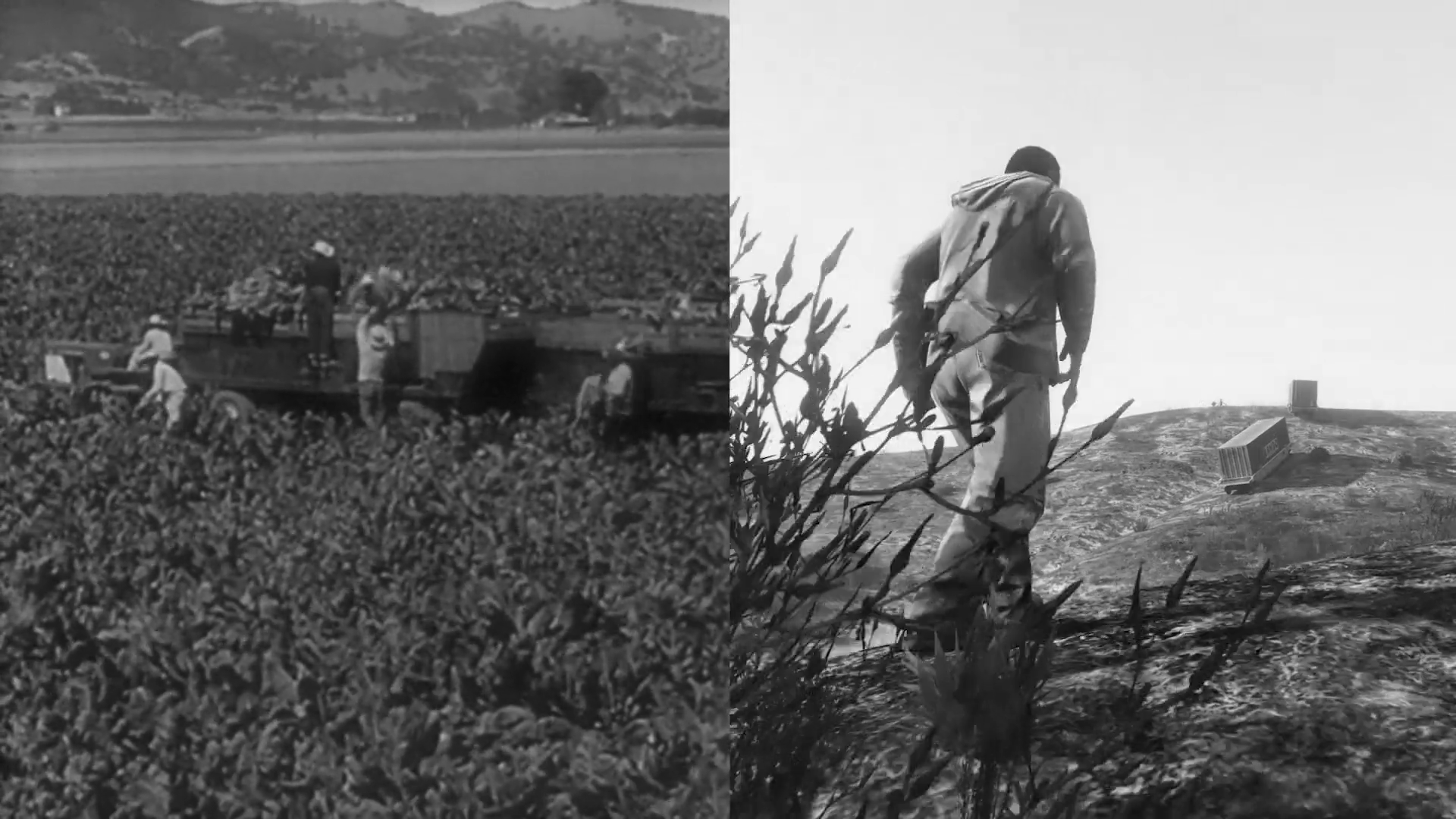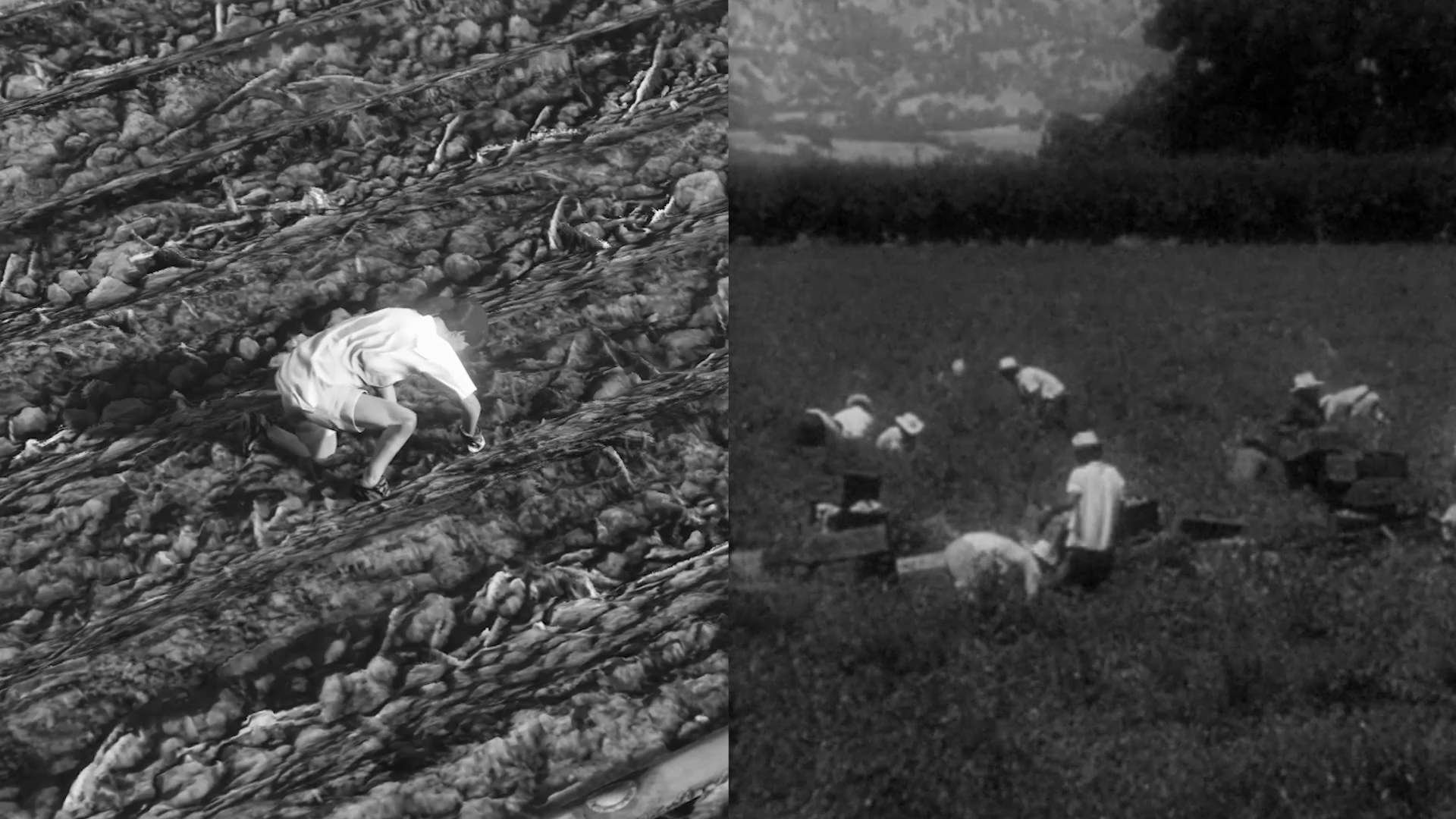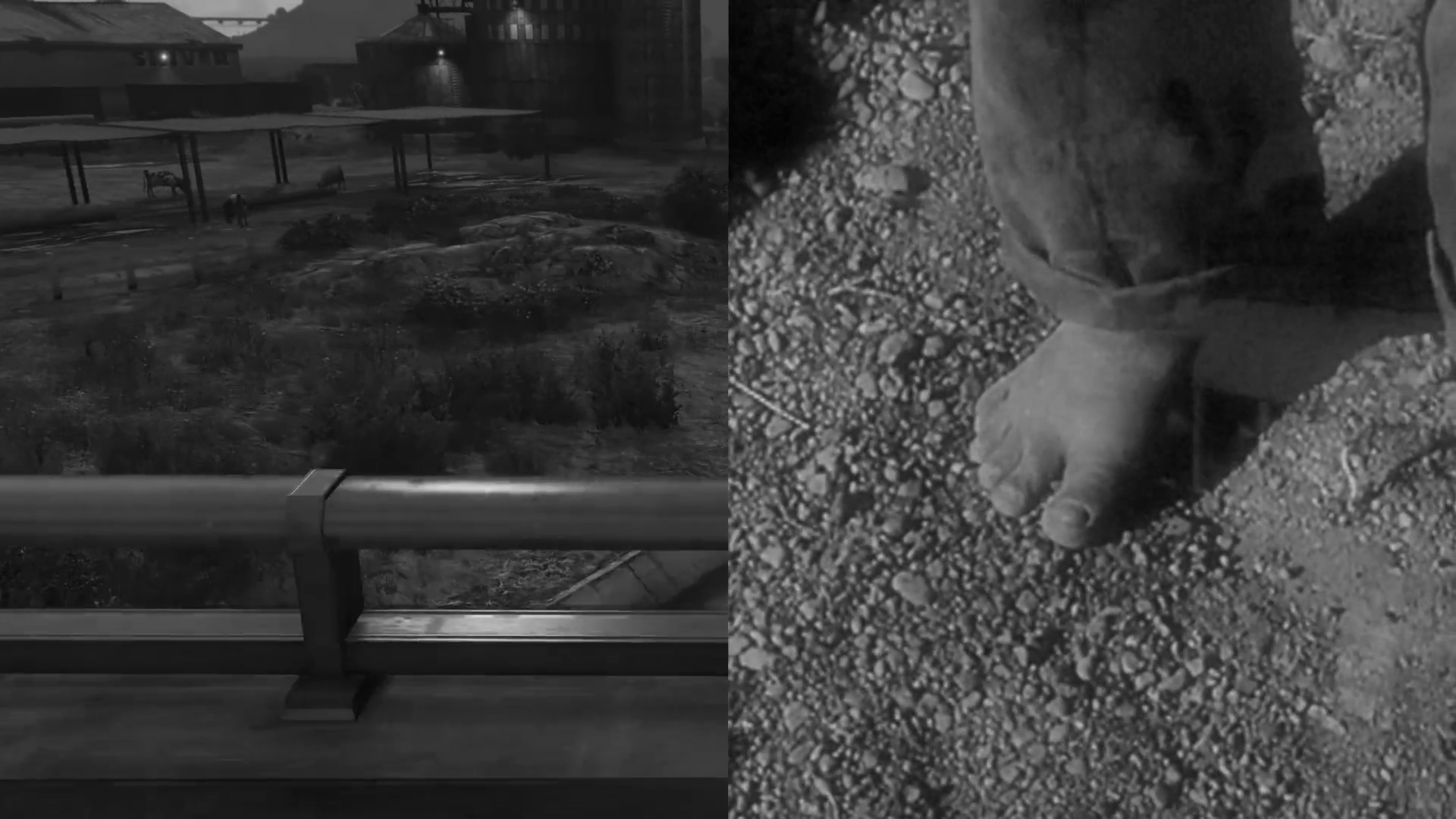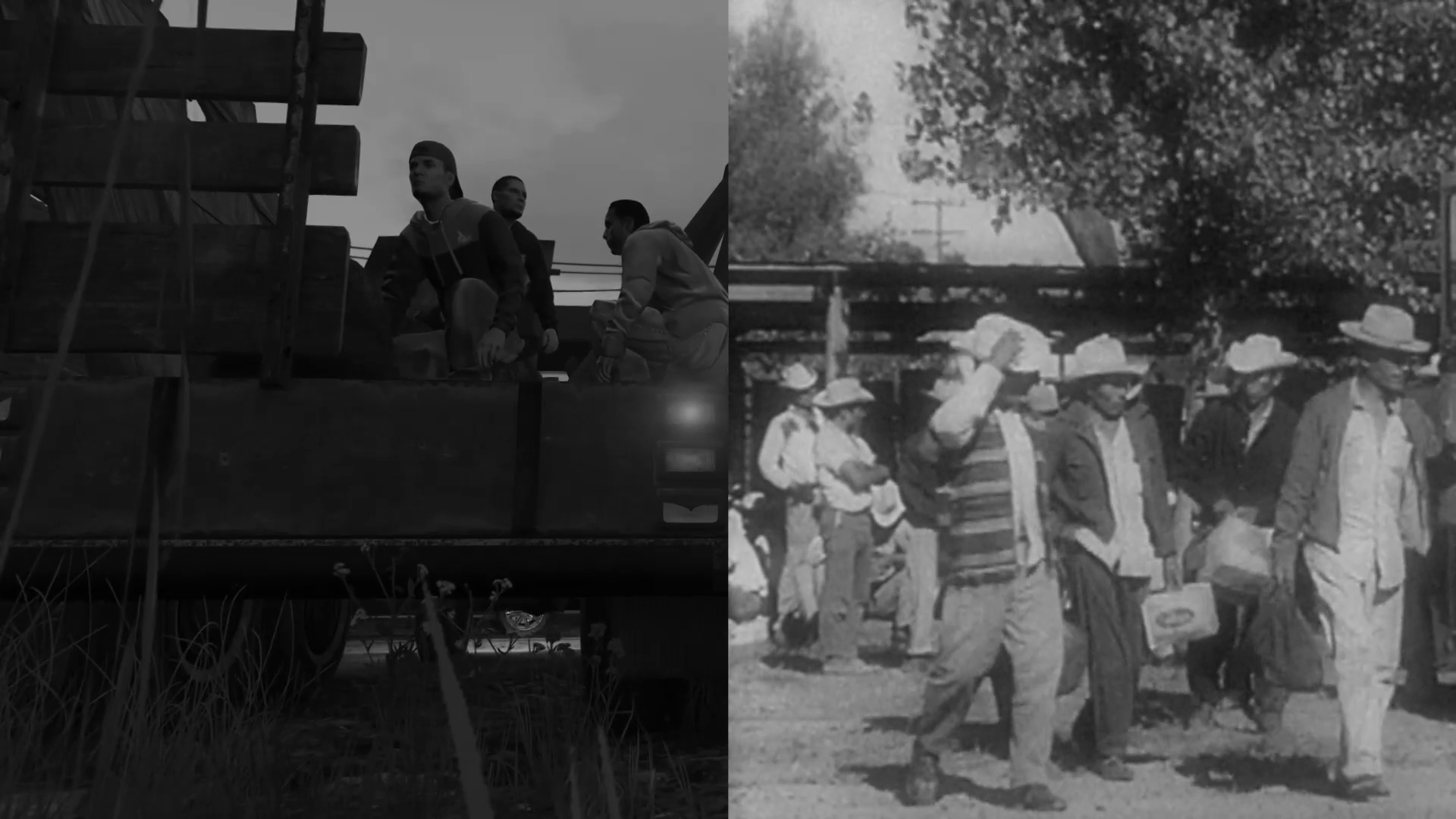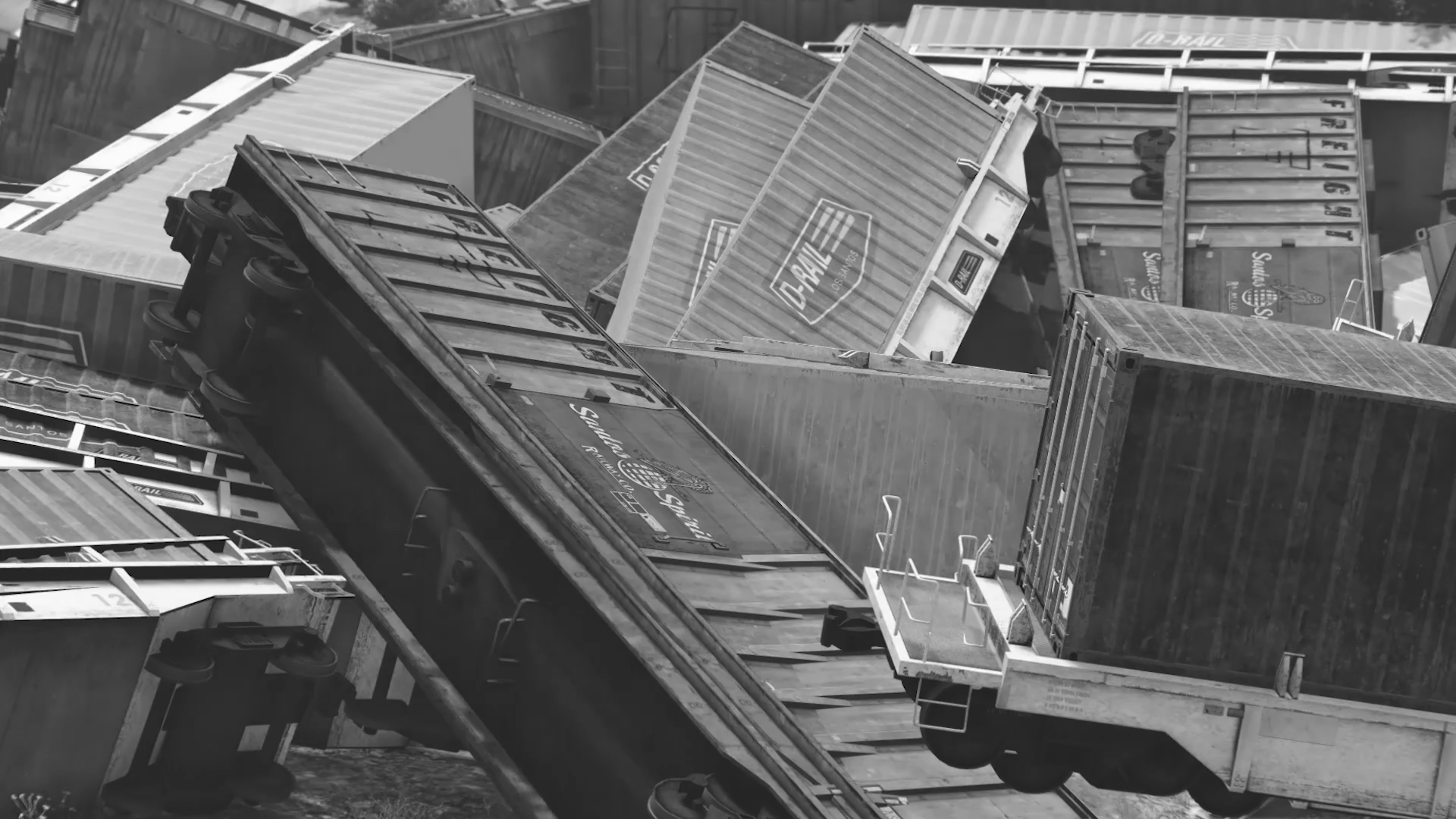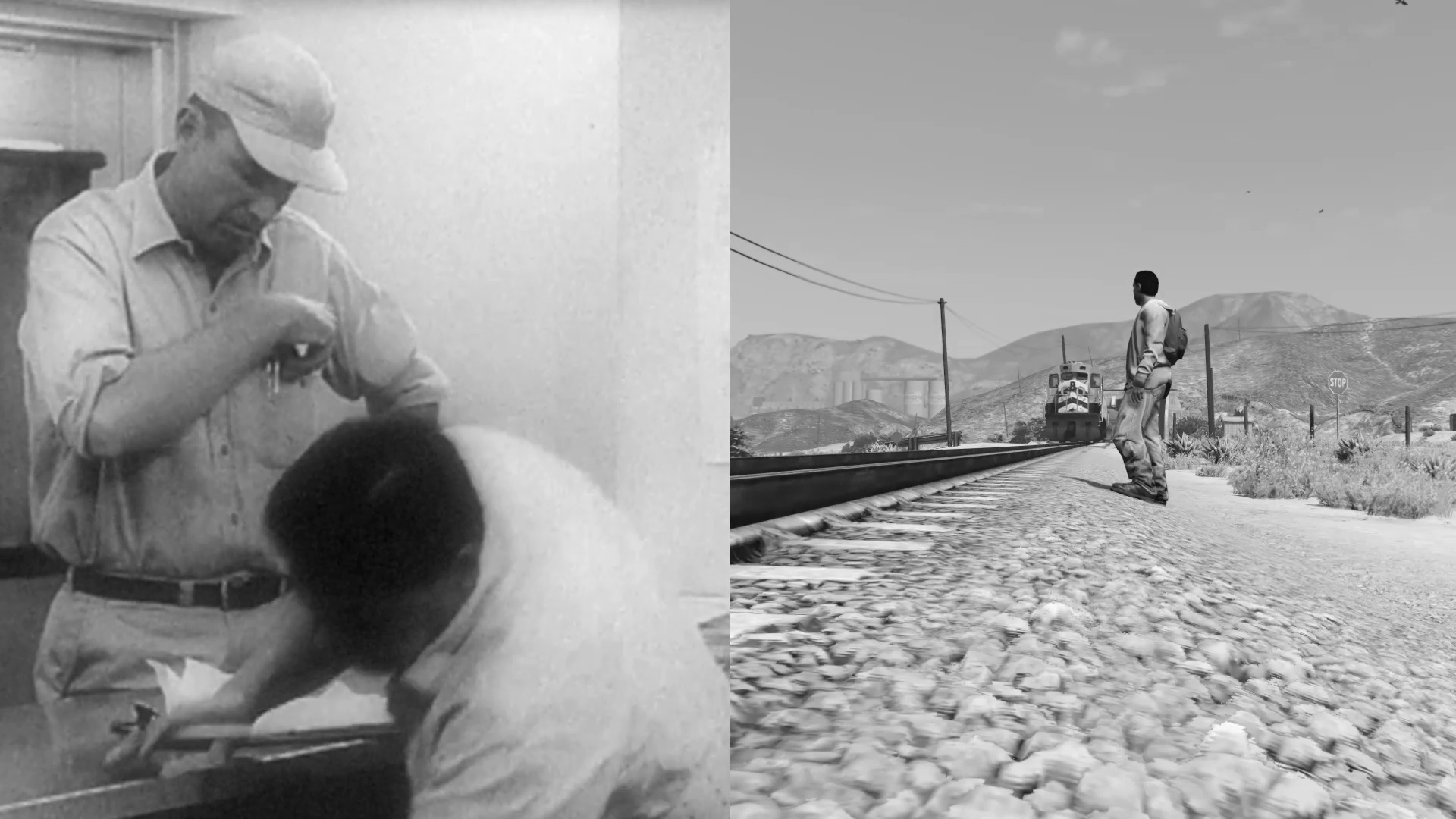Is appropriating a video game that glorifies capitalism to frame the delusions of the American Dream the ultimate subversive act? Felix Klee’s Cosecha mecánica creates a counter-narrative about labor, productivity, and exploitation.
Patreon-exclusive content
〰️
Patreon-exclusive content 〰️
Created by Felix Klee in 2020, Cosecha mecánica (née Stoop Labor) is a short black and white machinima depicting several non-playable Latino and Latina characters working in the fields as American propaganda celebrating cheap Mexican labor plays in the background. At one point, a field worker sings “Lo que quiero es una máquina lechuguera” ("All I want is a salad harvesting machine").
Cosecha mecánica questions the relevance and function of so-called non-player characters (NPCs) within computer games (and the game industry as a whole) through the example of Latin American field workers in the globally successful video game Grand Theft Auto V. Their portrayal reproduces and simultaneously critique existing power relations. Cosecha mecánica — which was presented at the 2020 Milan Machinima Festival — climaxes with a NPC worker fleeing the scene and observing a derailed freight train from atop a hill, a metaphor for the disruption of supply-chain and the logic of “business-as-usual”.
Mechanical harvest - the literal translation of Cosecha mecánica - is a reference to the labor practices of the North American agricultural industry, whose workforce is almost equal in size to the so-called digital workforce, according to Nick Srnicek (Platform Capitalism, 2017).
Cosecha mecánica juxtaposes the propaganda film Why braceros? (1962) produced by the Council of California Growers to justify the “bracero” farm labor program to Californians who felt threatened by the influx of workers crossing the border from Mexico, contemporary audio field-recordings, and background characters of a video game to provide a commentary on labor practices in the XX and XXI centuries. For the record, between 1956 and 1959, over 400,000 Mexican workers were recruited by North American farmers to work in their fields: the program was discontinued in 1964, when Congress decided not to extend the law. Incidentally, sixty years later, immigration still plays a key role for the agricultural industry in the United States.
This is a Patreon exclusive article. To read the full text consider joining our Patreon community.



